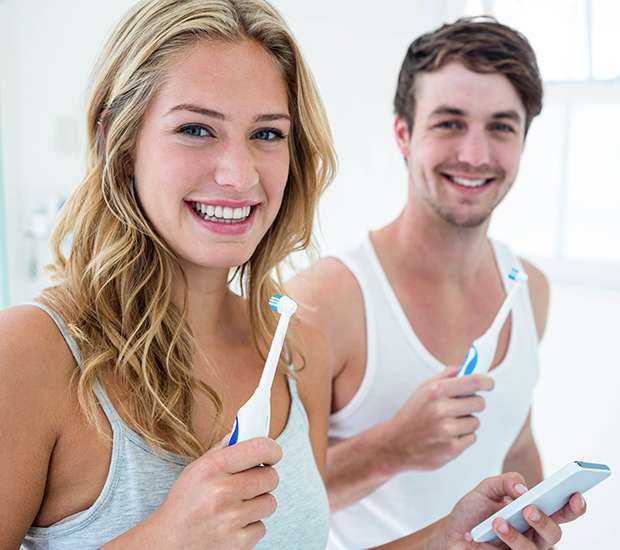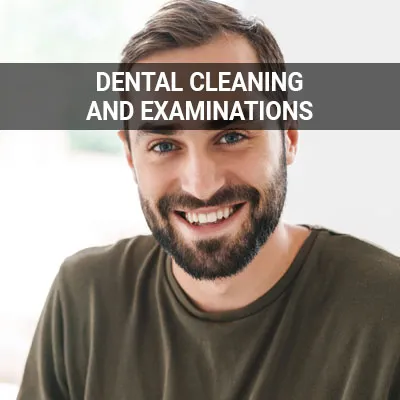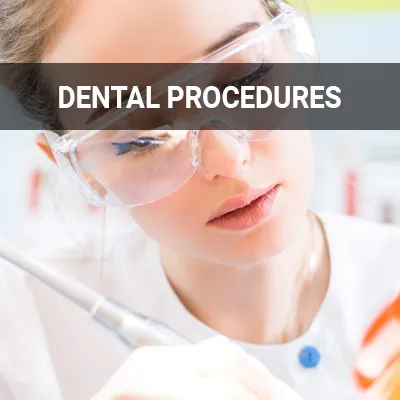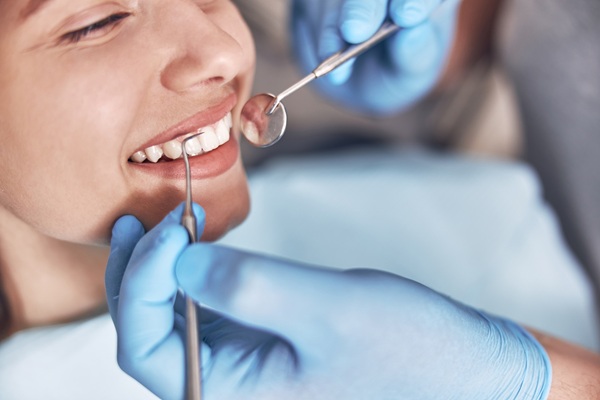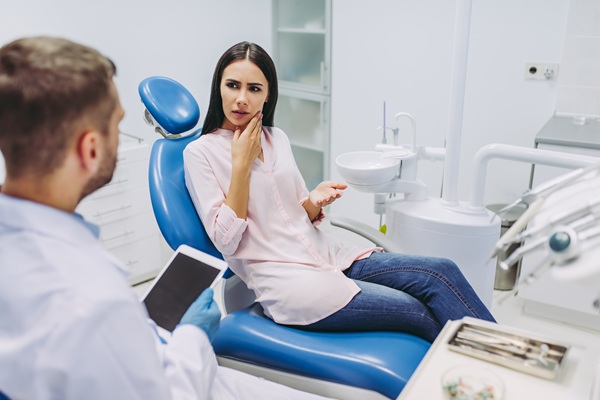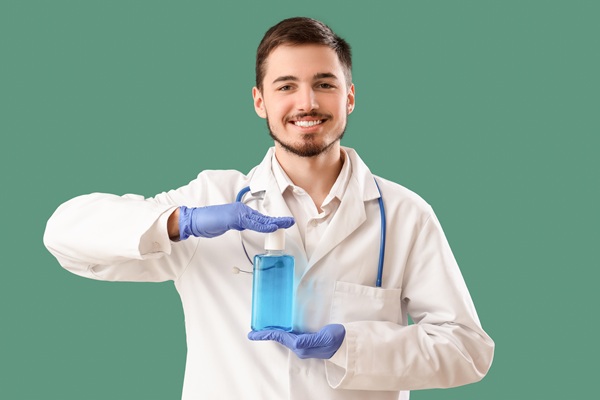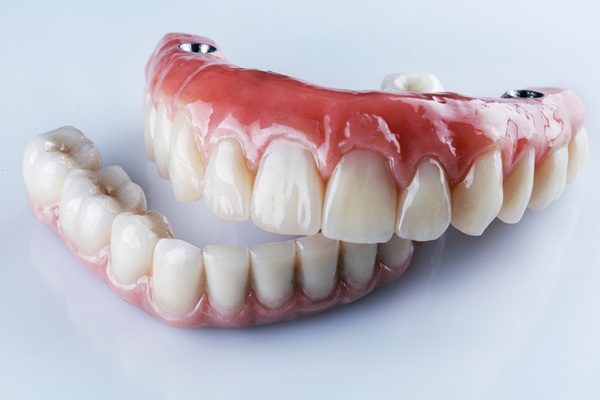Oral Hygiene Basics Marietta, GA
Beyond brushing your teeth twice a day, you might not think much about oral hygiene basics. However, the leading causes of tooth loss in older adults are gum disease and tooth decay, which are both caused by poor oral hygiene. Oral hygiene basics, such as proper tooth brushing and flossing, can help prevent these conditions and many other common dental problems.
Dental care is available at Happy Dental and Orthodontics in Marietta and the surrounding area. Contact us at (770) 200-4034 to schedule an appointment.
The Importance of Good Oral Hygiene
Maintaining good oral health is important for several reasons. First, oral health problems like gum disease can cause health problems in other parts of the body, including heart disease. It is especially important for pregnant women to take good care of their oral health: Gum disease has been linked to premature birth and low birth weight.
It is hard to overstate the importance of good oral hygiene. Even for those who brush and floss their teeth properly, it is worth reviewing oral hygiene habits occasionally to make sure they are doing everything properly. Good oral hygiene involves consistent daily habits and the right products and regular appointments with a dentist. In addition, some family members, such as children and the elderly, may need special help with their oral hygiene.
Most patients will require a regular dental cleaning at least once every six months. This cleaning removes any bacteria and tartar that has accumulated between the teeth and gums. Patients with gum disease may require a deep cleaning, also known as root scaling and planing, to remove larger amounts of bacteria and tartar buildup.
“Oral health problems such as gum disease can cause health problems in other parts of the body, including heart disease.”
Helping Family Members With Oral Hygiene
Since oral health can affect body health, it is important to teach children and others about oral hygiene. Someone should talk to family members about the importance of dental care. If any family member has anxiety about visiting the dentist, speak to the dental team about options to make the experience less intimidating. Either way, every member of the family should learn about oral hygiene and what they can do to take care of their smile.
Children and adults should have similar oral hygiene routines. There is a common misconception that a child's oral health care is different or perhaps not as important since their baby teeth will fall out. Even though baby teeth are replaced by larger adult teeth, they are still connected to the jaw bone in the same way. With children, this buildup on baby teeth can weaken their adult teeth for the rest of their lives, putting them at a higher risk of decay and disease later. This is why dental professionals recommend that children start visiting their dentist regularly from an early age.
No matter the age, everyone should prioritize oral health and establish an oral hygiene routine to keep themselves healthy. As they age, however, their smile may indeed have different needs. Along the way, they will have the help and guidance of our dental team, so they should be open with them and discuss their concerns.
“If any family member has anxiety about visiting the dentist, speak to the dental team about options to make the experience less intimidating.”
What to Include in a Dental Care Routine
A dental care routine will depend on the individual's current oral health needs, but in general, most routines should include the following:
Brushing
Everyone should brush their teeth twice a day with a dentist-recommended toothbrush and toothpaste. The right toothbrush should have soft bristles to prevent damage to the gums and tooth enamel. When brushing, use a small, pea-sized amount of toothpaste and move the brush against the teeth in a gentle circular motion. Move the toothbrush along the rows of the teeth at a 45-degree angle to brush at the gum line as well. Dental professionals recommend brushing for about two minutes. Make sure to get the top and bottom rows, as well as all surfaces of the teeth.
Flossing
After brushing the surface of the teeth, everyone needs to floss to clean the spaces between their teeth. Flossing should be done at least once a day to remove anything that may have gotten stuck between the teeth and reduce the possibility of buildup. To floss, hold a piece of dental floss tightly between the hands with the thumb and index finger. Gently slide the floss up and down between the teeth, curving it at the base of each tooth to get beneath the gum line.
Rinsing
After flossing, everyone should rinse with a dentist-approved mouthwash. Most mouthwashes will contain a small amount of fluoride to help keep the teeth healthy between regular dental checkups. Depending on the circumstances, the dentist may make a recommendation. Some people may need a mouthwash to help with bad breath, dry mouth, or gum disease. To rinse, follow the guidelines on the mouthwash bottle. Typically this means using a small amount of mouthwash poured into a clean cup to swish around the mouth for about a minute before spitting it out.
“A dental care routine will depend on current oral health needs.”
Check out what others are saying about our dental services on Yelp: Oral Hygiene Basics in Marietta, GA
How to Select a Mouthwash
Mouthwash is optional and should not be used in place of brushing or flossing. But a good mouthwash can help improve oral health in several ways: It can reduce the amount of acid in the mouth, help kill bacteria that contribute to bad breath, and increase fluoridation — all of which help prevent tooth decay.
Make sure to choose an ADA-approved mouthwash. Approved brands include ACT Anticavity Fluoride Rinse, CloSYS Fluoride Rinse, Colgate Phos-Flur Ortho Defense, and Hello Kids Fluoride Rinse. The dentist may have additional recommendations for mouth rinses.
Patients should also be sure to look for the ADA stamp of approval when looking for toothpaste and denture products. Given the wide variety of options available, it can be more difficult to choose a toothbrush. Patients should choose a toothbrush with a head large enough to allow easy access to all surfaces of the teeth. Most patients should also choose a soft-bristled toothbrush for optimum comfort and safety.
“A good mouthwash can kill bacteria that contribute to bad breath and help prevent tooth decay.”
Questions Answered on This Page
Q. Why is it important to educate the family about oral healthcare?
Q. What should a home oral care routine include?
Q. How does one maintain a healthy smile?
Q. Why is good oral hygiene important?
Q. Why should I use mouthwash?
People Also Ask
Q. How often should someone have a dental checkup?
Q. Am I at high risk for developing oral cancer?
Q. What is the importance of having a routine dental checkup?
Q. Why are dental cleanings important?
Q. Why is it important to find the right general dentist?
Q. What are the risk factors for oral cancer?
Health Practices for a Healthy Smile
If the goal is to have a healthy smile for life, then there are a number of things anyone can do to achieve that goal. The first and quite possibly most important thing to do is to stay in touch with the dental team. The dental professionals on this team will come to know each individual and their smile over time. They can provide guidance as the mouth ages and changes. To build and maintain this connection, regular dental checkups are important.
Dental checkups are normally recommended every six months, though some individuals may need them more often if they have a history of oral health concerns or gum disease. Between checkups, everyone should continue their at-home oral hygiene routine. While a checkup is a great way to remove the buildup of plaque and polish the teeth to protect them from bacteria, everyone needs to remove particles and bacteria daily to keep their smile healthy.
A daily routine should include brushing, flossing, and rinsing with a mouthwash. The dentist may also recommend different or additional steps depending on the smile's health. Additional recommendations may include:
- Drinking fluoridated water
- Quitting smoking and other tobacco products
- Limiting alcoholic, caffeinated or sugary drinks
- Controlling other diseases that may affect the teeth
- Deep cleaning
“While a checkup is a great way to remove the buildup of plaque and polish the teeth to protect them from bacteria, everyone needs to remove particles and bacteria daily to keep their smile healthy.”
Frequently Asked Questions
Q. Why are regular dental visits important?
A. Regular dental checkups can help identify minor dental issues before they become more serious. Treatment is likely to be simpler when problems are caught early. For example, when tooth decay and gum disease are treated early, they can often be reversed before significant tooth damage occurs. Untreated gum disease and tooth decay can lead to tooth loss and other major problems.
Q. Do I still need to see a dentist if I'm not having any problems?
A. Yes. Even if you are not experiencing any symptoms, you can still have dental issues such as tartar buildup and tooth decay. A dentist will be able to identify these issues before they become more serious.
Q. What are some signs that I should see a dentist?
A. If you experience swollen or sensitive gums, bad breath, pain or swelling in your mouth, difficulty chewing, or sensitivity to hot or cold foods, contact a dentist. These symptoms may be an indication of something more serious.
Q. Why are dental X-rays necessary?
A. Dental X-rays help dentists see tooth problems, including cracks and tooth decay, that are not visible to the naked eye. Expect to have X-rays taken if you have not been to the dentist in a while. Your dentist will take as few X-rays as possible to limit your radiation exposure. Let your dentist know if you are pregnant or may be pregnant, as pregnant women should not have X-rays taken.
Q. Is fluoride necessary for teeth?
A. Fluoride strengthens teeth while preventing decay. The American Dental Association (ADA), the American Academy of Pediatrics (AAP), and the Centers for Disease Control and Prevention (CDC) alike agree that children should use fluoride toothpaste for brushing. It also benefits adults.
Dental Terminology
Call Us Today
Before scheduling an appointment, be sure to make notes of any current at-home oral hygiene routines to be able to talk to the dental team about how to improve them. Scheduling an appointment and following through with dental checkups is a great start to a lifetime of healthy smiles.
When scheduling a dental appointment, take this time to make the dental team aware of any concerns and tell them if they need to take any steps to make the experience more enjoyable. To schedule an appointment, call us at 770-200-4034 today!
Helpful Related Links
- American Dental Association (ADA). Glossary of Dental Clinical Terms. 2024
- American Academy of Cosmetic Dentistry® (AACD). Home Page. 2024
- WebMD. WebMD’s Oral Care Guide. 2024
About our business and website security
- Happy Dental and Orthodontics was established in 2021.
- We accept the following payment methods: American Express, Cash, Discover, MasterCard, and Visa
- We serve patients from the following counties: Cobb County and Fulton County
- We serve patients from the following cities: Marietta, Smyrna, Sandy Springs, Atlanta, Kennesaw, Roswell, Acworth, East Cobb, Alpharetta and Fair Oaks
- National Provider Identifier Database (1407403652). View NPI Registry Information
- Norton Safe Web. View Details
- Trend Micro Site Safety Center. View Details
Back to top of Oral Hygiene Basics
